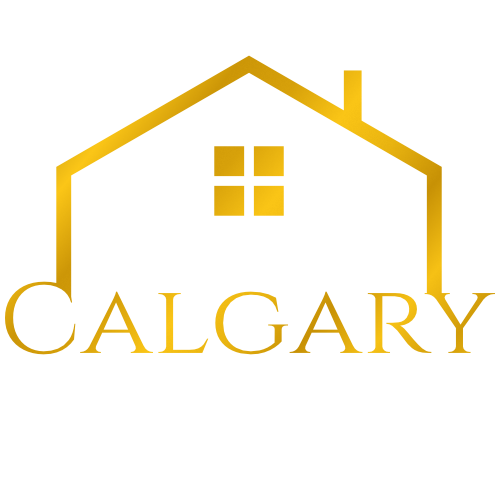If you’ve had credit issues in the past, it’s easy to feel like doors are closing on you—even when you own a home. But at Calgary Equity Loans, we know that bad credit doesn’t always disqualify you. In fact, with enough equity and a solid repayment plan, home equity loans remain an option for many homeowners—even those turned down by traditional banks.
What Does “Bad Credit Doesn’t Always Disqualify You” Mean?
Credit scores still matter—but not as much when your home backs the loan. Alternative and private lenders place stronger emphasis on equity and repayment ability. If you meet their thresholds, bad credit is less likely to be a deal-breaker. Rather than a flat “no,” you’ll often get clear terms, risk assessments, and a chance to borrow—even when banks say no.
Why Credit Scores Often Create Barriers
Lenders use credit scores as shorthand for risk. Low scores often lead to:
-
Higher interest rates to offset increased default risk.
-
Larger down payments or equity requirements.
-
Strict terms, especially from regulated institutions.
But alternative lenders like Calgary Equity Loans view property equity and repayment capability as more central.
How Equity Plays a Bigger Role than Credit
Equity is the difference between your home’s value and your remaining mortgage. It’s a measure of your home’s non-borrowed value. The more equity you have, the stronger your borrowing position. In many cases, this outweighs credit score issues.
Loan-to-Value (LTV) and Combined LTV (CLTV)
-
Most lenders cap second-mortgage borrowing at 80–85% of your home’s value, including first mortgage debt.
-
A healthy equity position (e.g. 20–40%) signals lower risk and better eligibility—even with poor credit.
Alternative lenders focus on your equity level and your ability to repay, not just what your credit report looks like.
Repayment Ability Matters More than Credit
Private and alternative lenders assess:
-
Your stable income or predictable cash flow.
-
A clear repayment schedule for the new debt.
-
Evidence you’ve handled past debt responsibly—even if your score is low.
You might be surprised: someone with a non‑prime credit rating but consistent income and equity can qualify—while someone with good credit but unstable finances might not.
Typical Use Cases Where Bad Credit Is Less of an Obstacle
✅ Debt Consolidation
Combining credit cards or payday loans into one lower-interest home equity loan can reduce monthly costs and stabilize payments.
✅ Home Renovations or Repairs
Access to a lump sum can fund value-adding upgrades in a controlled way—especially useful if your finances need a facelift, too.
✅ Emergency Funding
Medical bills or urgent expenses often need quick attention. Alternative lenders can often assist faster than banks.
✅ Education or Career Investment
Depending on your equity and repayment ability, funding tuition through a home equity loan can carry lower interest than student lines of credit.
What to Expect from Alternative Lenders
-
Equity-focused evaluation over credit-based scoring
-
Higher interest rates than prime lenders—but still often lower than unsecured loans.
-
Clear, short-term contracts (1–3 years)—not long-term bank mortgages.
-
Legal compliance via lawyer registration, ensuring your home secures the loan while protecting you with transparent contracts.
With Calgary Equity Loans, our process is faster and more flexible—often funded in just a few business days.
Risks When Bad Credit Is Involved
-
Higher cost of borrowing: Expect rates that cover the lender’s additional risk.
-
Strict foreclosure provisions if payments aren’t met—meaning losing your home is a serious risk if you default.
-
Fees: appraisal, lawyer and registration costs are built into every deal. These are similar whether you borrow $30,000 or $100,000.
That’s why having a clear repayment plan is essential—even more so when credit is low.
How to Prepare if You Have Bad Credit
1. Review your home equity
Use an online home value estimator or get an appraisal to understand your equity position.
2. Outline a repayment plan
Factor in income sources, monthly payments you can afford, and your target payoff timeline.
3. Disclose your credit issues
Be open about bankruptcies, defaults, or other credit challenges—they won’t necessarily disqualify you if equity is strong.
4. Talk to alternative lenders
A lender like Calgary Equity Loans will walk you through eligibility based on equity—not just your credit score.
5. Working to improve your score
Even small improvements—like lowering credit card balances or correcting errors—can reduce interest rates and open more options.
A Real Example: When Bad Credit Doesn’t Mean No Loan
-
Home value: $400,000
-
First mortgage: $320,000
-
Equity: $80,000 (20%)
Credit score: 590
Income: Stable salary and self-employment record
Goal: Need $40,000 for debt consolidation and home repairs
With Calgary Equity Loans:
-
Equity is strong
-
Repayment ability is clear
-
Loan approval granted, with fixed monthly payments and clear terms
Bad credit alone did not stop Jane from accessing cash to improve her finances and home.
Key Takeaways
-
Bad credit doesn’t always disqualify you—equity and repayment ability carry significant weight.
-
Alternative lenders can offer home equity loans when traditional banks won’t.
-
Interest rates may be higher, but often still better than unsecured options.
-
Home equity loans require clear repayment planning to protect your property.
Is It Right for You?
Home equity lending with credit risks requires caution. Ask yourself:
-
Do I have at least 20% equity in my home?
-
Is my income stable enough to support payments?
-
Am I committed to a solid repayment plan?
-
Could my financial situation improve soon?
If you answered “yes” to these—and especially if banks have already declined your application—it may be time to talk equity-based lending.
Why Calgary Equity Loans?
We specialize in working with homeowners who’ve been turned down elsewhere—but who have solid equity and repayment ability:
-
Fast approvals—often within three business days
-
No broker fees or surprises
-
Local, Calgary-based team with home value expertise
-
Loans starting around $30,000, ideal for debt, renovations, or emergencies
It’s common to feel stuck after credit setbacks—but owning a home gives you options. Because your equity supports the loan and your repayment plan leads the way, bad credit doesn’t always disqualify you.
At Calgary Equity Loans, we’re here to review your situation—not just your credit report—and find out if home equity lending makes sense for your goals and circumstances.
Ready to talk options? Contact us today for a straightforward consultation.



